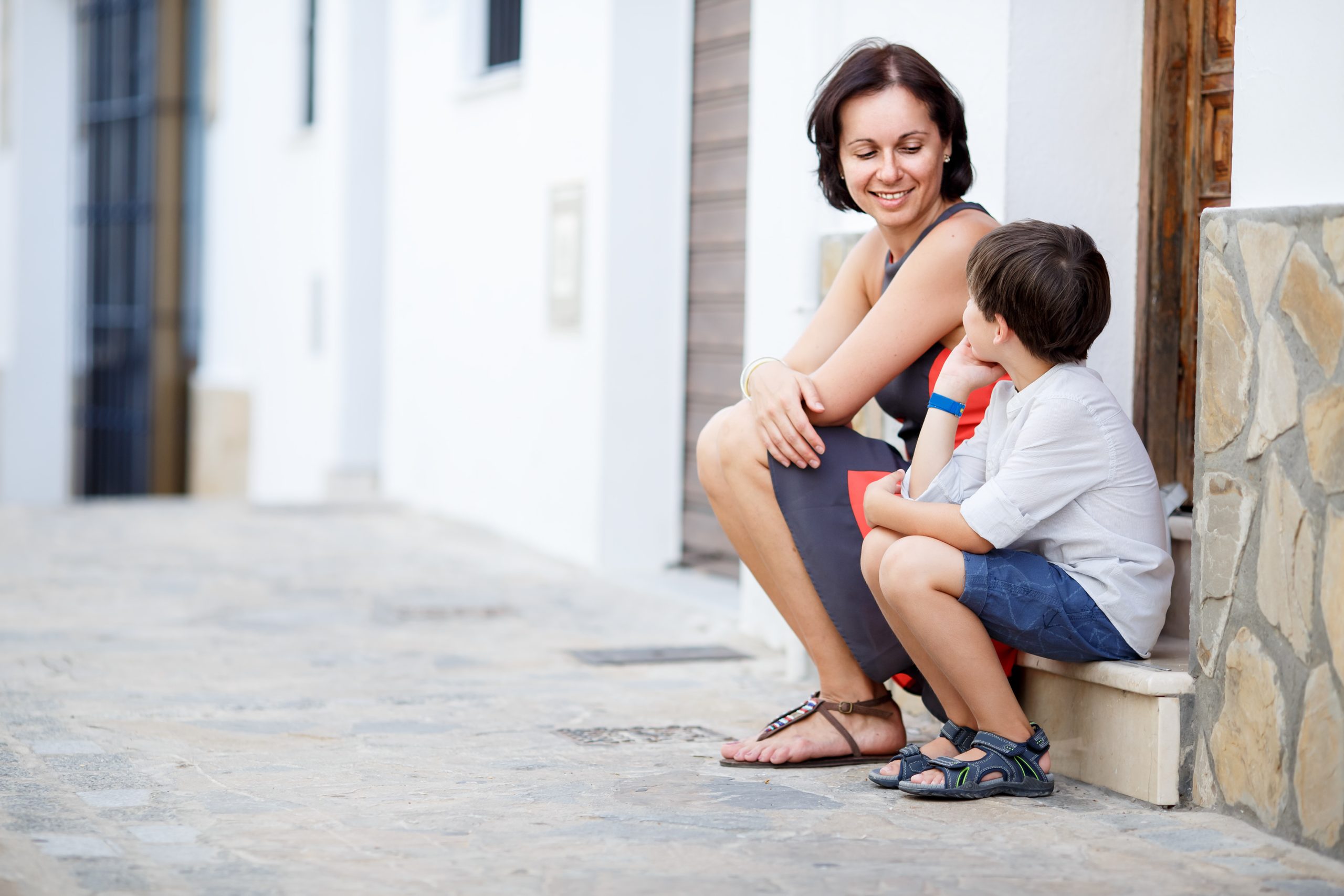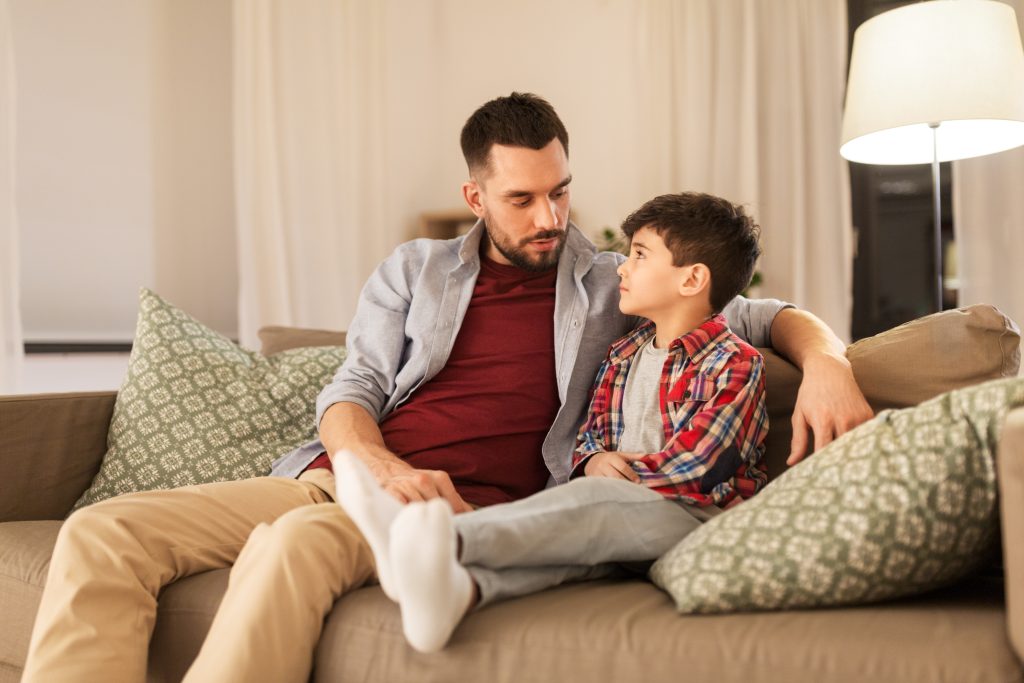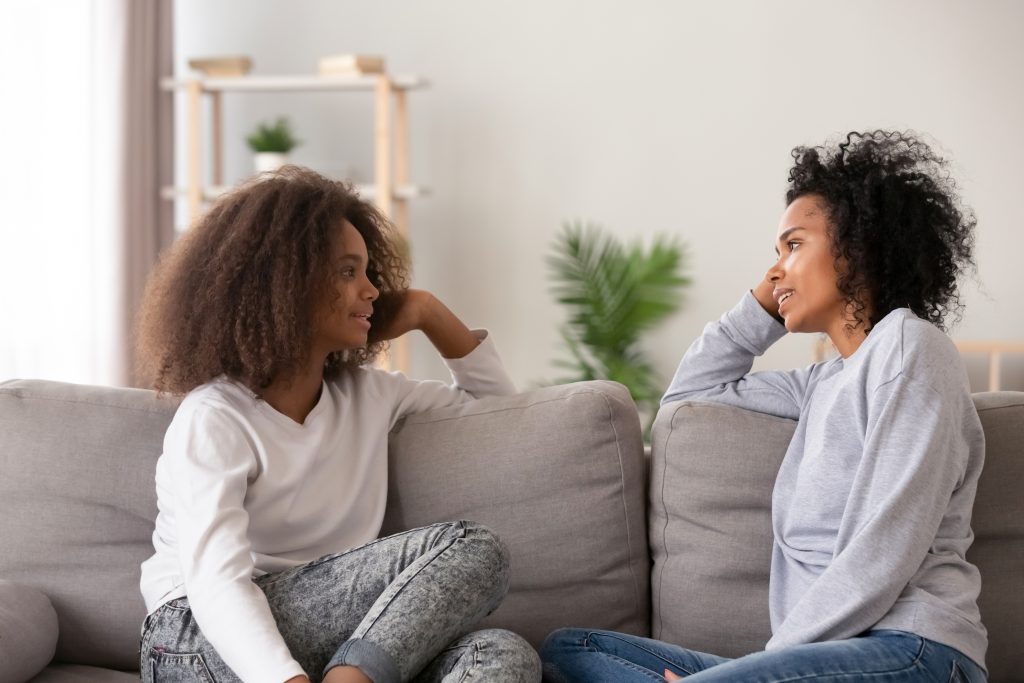
The Birds and the Bees: How to Talk To Your Kids About Sex
Laura*, a Vancouver mom with a 13-year-old son describes talking to her kid about sex as an unfolding conversation that shifts over time. It starts with body parts and, when the time is right, includes discussing sex directly. Her goal is to normalize it, provide the right vocabulary for his physical experiences and feelings and to assure him he’s not alone in what he’s going through.
She recommends talking to kids two years before you believe they’re going to experience a specific issue. “If you wait until the topic comes up you’ve missed the window,” she says.
Jan*, a Portland area mom with a 7-year-old daughter has taken the same approach. “The thing about ‘the talk,’ is that it’s not a one-time thing, it’s an ongoing thing.”
“The thing about ‘the talk,’ is that it’s not a one-time thing, it’s an ongoing thing.”
When to Start
It’s hard for many parents to know exactly when to talk about sex with their children. Wanting to protect their innocence and let them be little for as long as possible is what holds many parents back from starting the conversation. Some find it best to wait until a child begins to ask questions, but experts explain how to let the conversation come naturally as the child grows in age and understanding.

“Start early, at age 1 or 2, when they’re starting to learn language,” advises Jasmine Hankerson, a licensed marriage and family therapist with Vancouver Counseling Solutions, PLLC. “Teach them the biology of their body. Use the correct terms, like nipples or penis, not ‘that thing down there,’” she advises. Between the ages of 2-5, children should be able to understand and express personal boundaries.
“It’s important to arm our children with what constitutes good and bad touches, and where people are allowed to touch them,” concurs Wendy Scott, a licensed mental health counselor associate and a certified domestic violence treatment provider at A Better Way Counseling Service in Vancouver. “Arm your children with information that they have safety zones that no one should touch, and if someone violates these zones, teach your children to tell a trusted adult. Make sure your children know their bodies are theirs, and no one has a right to make them feel uncomfortable.”
Jan turned to age-appropriate reference books when her daughter asked, “Do we come from chickens?” Over time, the conversions progressed to “The boy does what? Does it hurt?” She’s also had to assure her daughter, who asked, “Is it OK if I’m gay?” that yes, her mom will still love her. Open as Jan is, she told her daughter not to share what she knows at school or with her friends. If other kids bring it up, she coached her daughter to answer, “This is a topic you need to go home and talk to your grownup about.”
School-Based Sex Ed
Clark County school districts comply with Washington State Senate Bill 5395 passed in 2020, which provides social-emotional learning (SEL) to help students manage emotions, set goals and get along with others. That curriculum includes age-appropriate sex education beginning in grade four, though parents are informed up front about what will be covered and can choose to have their children opt out of the human growth and development lessons. These school-based lessons are oftentimes a supporting resource for parents to continue talks that have begun at home already. The school setting also helps children understand where to go to find good sources of information and not to rely on what they hear from other kids.
Some parents are initially hesitant to have their children participate in these lessons, especially in the elementary grades. However, during the fall curriculum night, many change their minds when they learn what is included in the lessons. Parents are assured that everything based on science, whether that is anatomy or contraception. In Vancouver School District, almost every single lesson includes a family homework exercise, to encourage conversation about what the students are discussing in class. It’s an opportunity for parents to extend the subject, address any misconceptions or express their thoughts, values and feelings.
Some families worry that talking about sex will encourage sexual activity in children. However, studies have shown the oppositive to be true. A report from the American College of Obstetricians and Gynecologists’ Committee on Adolescent Health Care showed that comprehensive sexuality education programs reduce the rates of sexual activity, sexual risk behaviors (number of partners and unprotected intercourse), sexually transmitted infections (STIs), and adolescent pregnancy. Additionally, the Centers for Disease Control (CDC) has found that teen sexual activity and pregnancies are at an all-time low. In a biannual study from 2019, 38% of high schoolers reported having ever had sex compared to 54% in 1991. Boys are slightly more likely to have had sex than girls at 39% to 37%.
Empowering Girls

April*, a Clark County mother of an 18-year-old daughter started her talks with daughter about fourth or fifth grade. “The day of the period talk at school, I got to meet my daughter at the bus and see all the samples and booklets. I was there to answer her questions.” Later, when the time came that her daughter planned to have sex with her longtime boyfriend, April helped her daughter pick out her birth control beforehand.
As a youth, Mina* came to the U.S. from Iran, a Middle Eastern country where discussing sex in the culture was considered taboo. Growing up, she felt confused and guilty about sex. She wanted to make sure her daughter didn’t experience that since sex is a natural part of life. In the fourth grade, her daughter was curious and began to ask questions. Mina held off the conversation and said, “Let’s wait until this summer before talking about sex.” Unfortunately, the talk never happened. “I regret it,” she admits. “I didn’t want to have the talk, [but] I really wish [we had] back when she was willing to speak to me about it.” She wants other parents to know when your child asks questions that, “You should not miss the moment.”
Girls face heavy societal judgement when it comes to sex—whether they engage or abstain. They are typically cautioned to avoid being put into situations that go further than they want, to avoid getting a sexually transmitted infections, to avoid getting pregnant and to protect their reputation. However, more recently there’s a movement to re-orient the discussion beyond avoiding coercion to being as firm about what they do want as what they don’t want. There’s also a greater emphasis on deliberately avoiding alcohol to “numb out” when sex is more likely, while at the same affirming that consent when under the influence is not accepted as full consent.
Boys Have Feelings Too
While parents’ talks with boys often focus on emphasizing that sex without consent is considered rape, and that if even a one-time causal encounter results in pregnancy their financial responsibility is long term, stopping there stops well short of encouraging healthy relationship development.
Currently, Laura’s son is still too disinterested in girls for a discussion about sex from a relationship context. When her son does starts dating, she plans to borrow another mom’s analogy about choosing a pizza with your date. You start with asking what your date wants on their pizza. Then you share what you like. Together you arrive at a pizza that satisfies both your tastes. Sex should be similar: you identify what each of you want and find common ground.
What About Pornography?
Laura believes when kids get their own cell phone, porn inevitably follows. “Anyone who doesn’t believe their kid’s been exposed to porn by middle school has their head in the sand,” she states. She defines porn as “anything that makes you uncomfortable” and suggests talking about porn before kids get a cell phone and to delay giving them cell phones until you feel they are truly ready for the responsibility. Agreements between parents and their child to routinely check their phone, as well as filters, help to keep kids accountable for the content they look at or download.
Conversation Openers
Even if your kids don’t come to you with their questions or concerns, initiate the conversation anyway yourself. Planned Parenthood’s “Tips for Talking” suggests some of these cues to start the conversation:
- When you, another family member, friend, or neighbor announces they’re pregnant
- When puberty, dating, LGBTQ issues, love, or sex comes up on a TV show, movie or in a song on the radio
- When gender stereotypes are pushed in ads, games, TV, books, movies, etc.
- When you see unrealistic portrayals of, or very sexualized bodies (i.e. Photoshopped celebrities or models)
- Ads for pads and tampons, birth control or condoms
- News stories or ads that talk about sex
General Dos and Don’ts
- Do let your child lead the conversation as much as possible. Ease into the conversation from their perspective.
- Don’t provide more information than your child needs.
- Do keep what information you provide age appropriate.
- Don’t shame your child. Try to understand their underlying feelings such as fear, curiosity, or a need for connection, rather than reacting in shock to their words or actions.
- Do remind your kids that porn is fake. Make sure they know that it’s acting and not what sex is like in real life.
- Don’t ask close-ended, uncomfortable, direct questions, such as “Are you having sex?”
- Do keep the conversation casual and open-ended—for example, “You have a boyfriend? Tell me more. . .”
- Don’t judge your child’s preferences.
- Do educate your child to be kind and respectful of other’s beliefs.
- Don’t wait too long.
*Parent’s names have been changed to protect family privacy





